تێست
In the midst of the crisis, 30-year-old entrepreneur Caroline William, who started a tailoring factory in Erbil Governorate a few months before the pandemic was declared, decided to refashion her business to produce one of the most vital items in the fight against COVID-19 —masks.
.jpg)
Caroline's factory produced medical scrubs from January to April 2020. Yad Abdulqader/IOM 2020
“I founded the factory in January [2020] and started producing medical scrubs. But when the pandemic [was declared] in March, everyone needed masks for protection and there was a shortage across the country,” William said. “In April, I decided to shift the production to masks.”
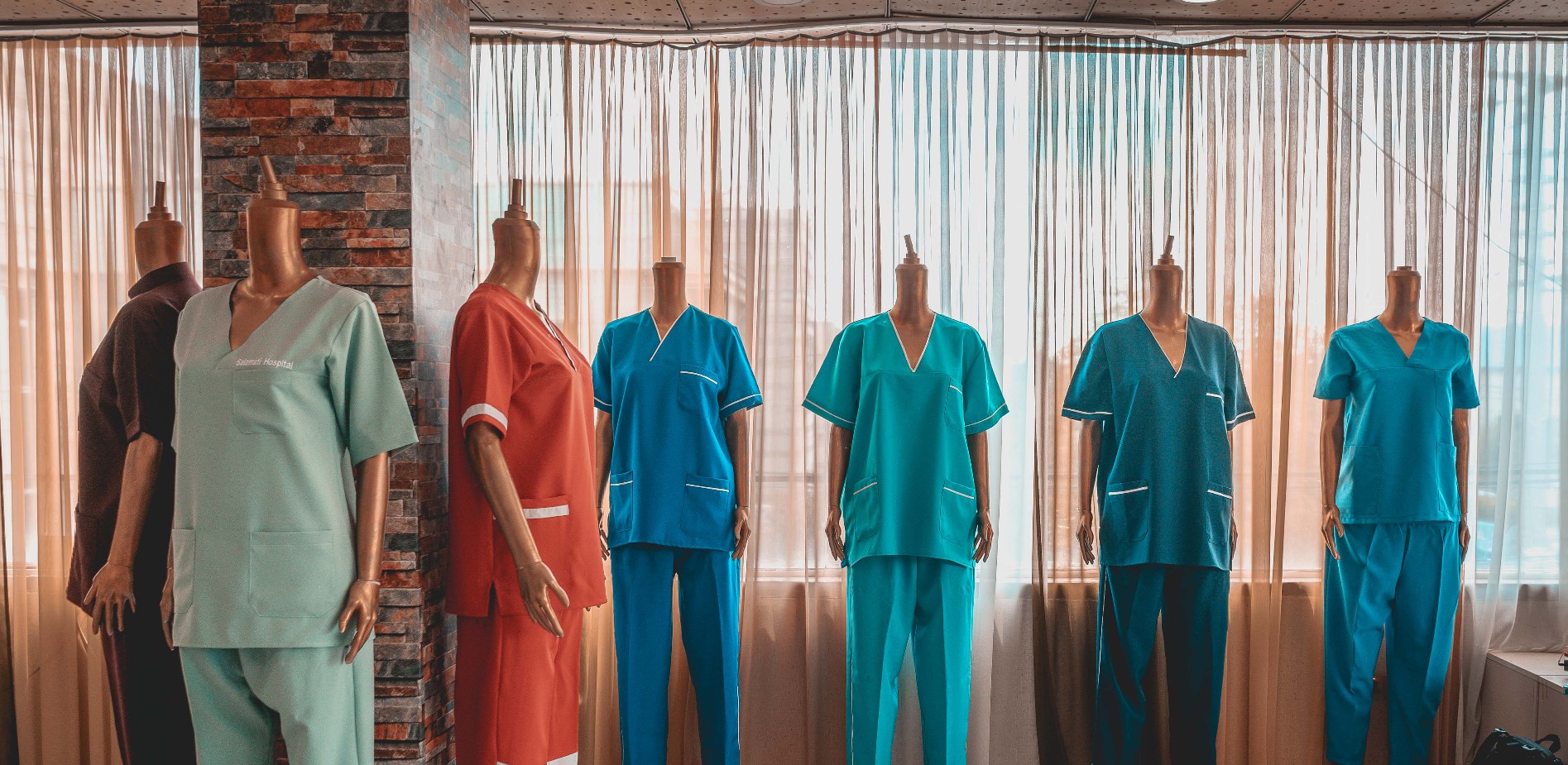
The factory still receives requests for medical scrubs. Yad Abdulqader/IOM 2020
Caroline is a Christian woman living in Erbil’s Ankawa district. She first established a tailoring business in September 2018 with one employee; they produced women’s clothing. In September 2019 she closed the business, then spent the following three months brainstorming new ideas and researching tailoring businesses in Iraq.
“In tailoring, you have to pick one particular line of clothing to be successful,” William explained. “I decided to specialize in medical scrubs and lab coats, because we didn’t have factories that produced them in Iraq, all medical scrubs were being imported from abroad.”
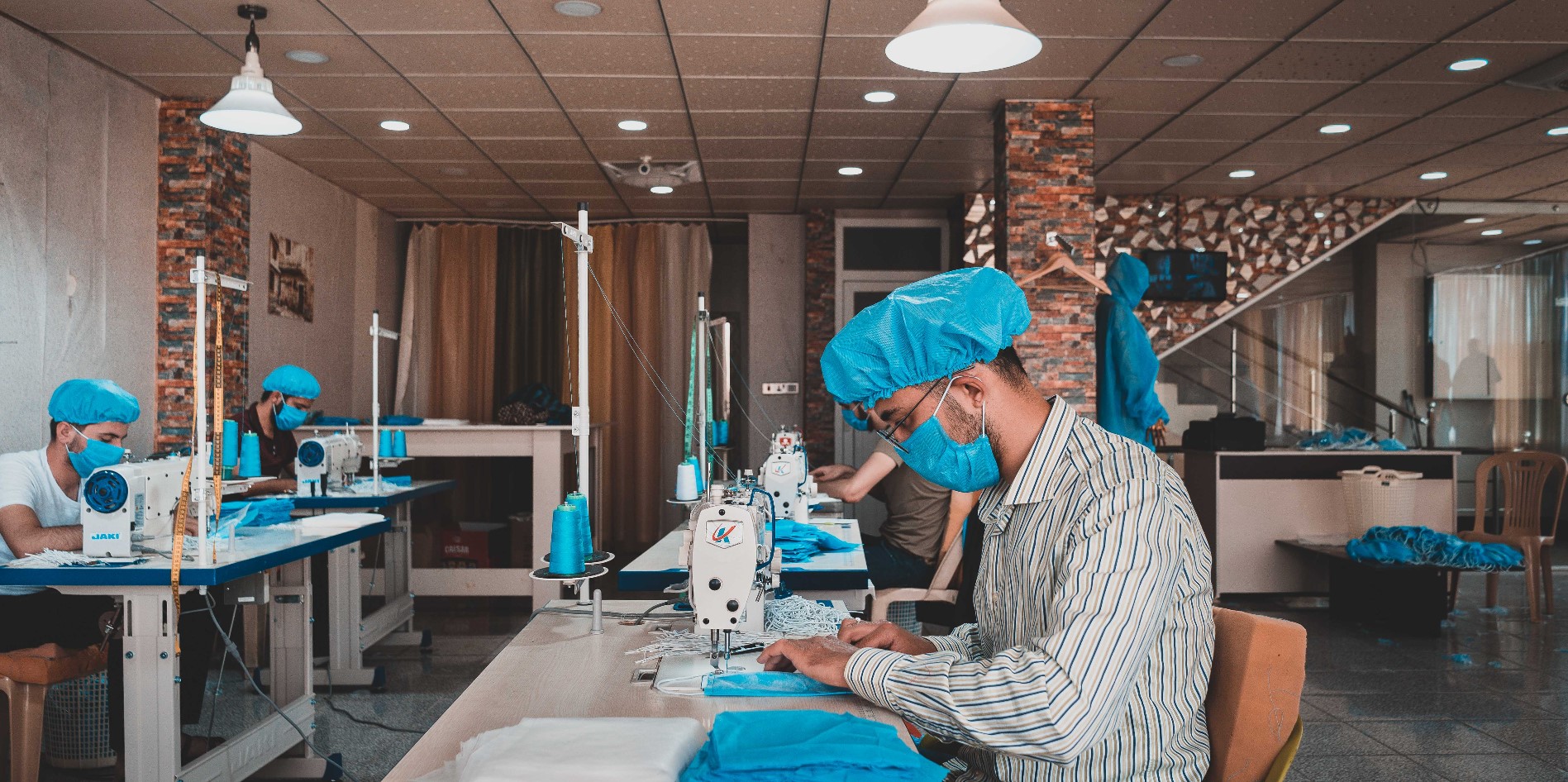
All employees use personal protective equipment (PPE) during their work. Yad Abdulqader/IOM 2020
Although Caroline was keen on specializing in medical clothing only, she was quick to recognize the need to produce masks locally, as COVID-19 infections spiked and caused the rapid depletion of masks in the local markets.
“Many people with jobs that required them to wear masks regularly could not find them on the markets, or afford the soaring prices,” William continued.
With only 10 employees, Caroline William’s factory now manages to produce more than 2,500 masks per day.
“I’m very amazed and surprised to see that so many families have benefited from my business,” she said. “Many people whom I’ve never met call me; they all ask about masks and thank me for producing them at such a reasonable price.”
.jpg)
Caroline's entrepreneurial vision is to turn her business into one of the country's top tailoring factories. Yad Abdulqader/IOM 2020
Although the factory was able to meet a good portion of the local demand for masks after altering production focus, the lack of machines and funding was preventing William from expanding her factory and producing more masks.
“[There was also demand for medical scrubs] but I don’t have the capacity to produce both items,” William said. “With only six machines, we are already producing at our full capacity.”
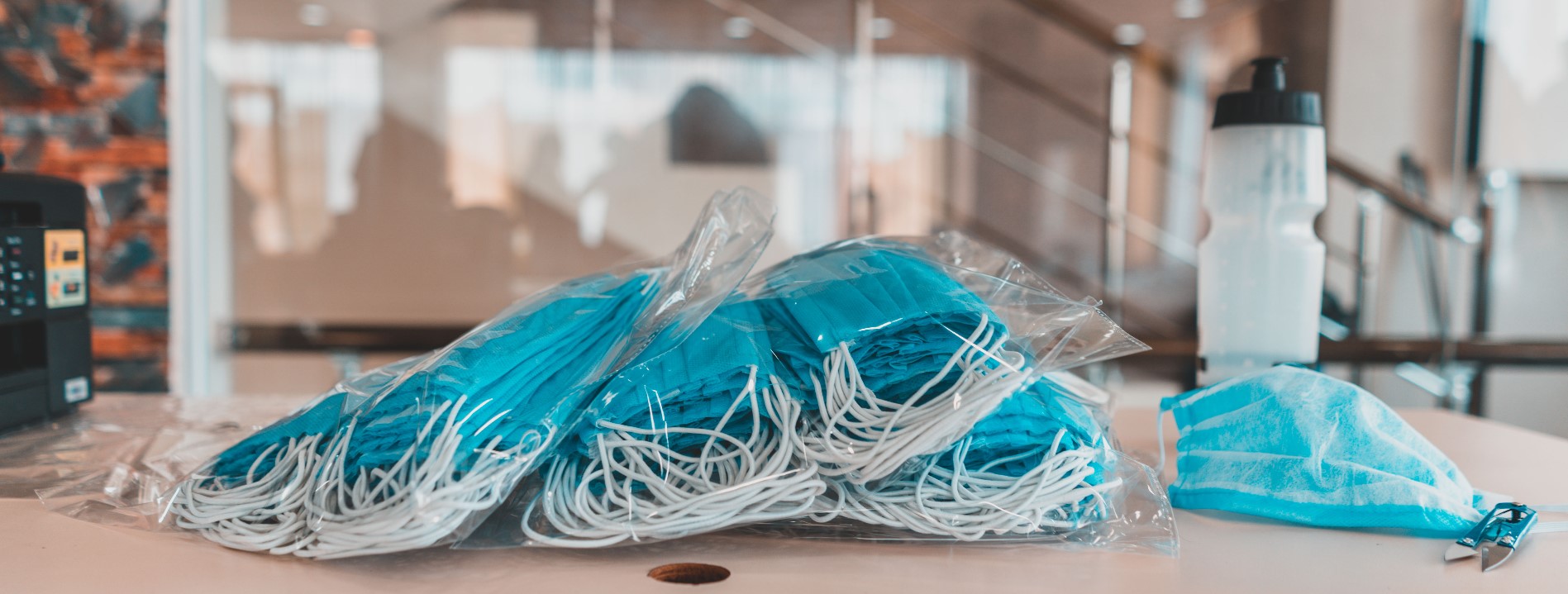
Due to movement restrictions between governorates during the lockdown, the masks were only distributed within Erbil Governorate. Yad Abdulqader/IOM 2020
Caroline William didn’t think she would be able to expand her business anytime soon. She had previously approached many banks and financial institutions for loans, but nobody supported her; the banks required her to pledge assets to receive loans.
“I’m just a normal girl from a normal family; I don’t own houses or lands that I can pledge,” William said. “I just have ideas, and I always say my ideas are bigger than myself.”
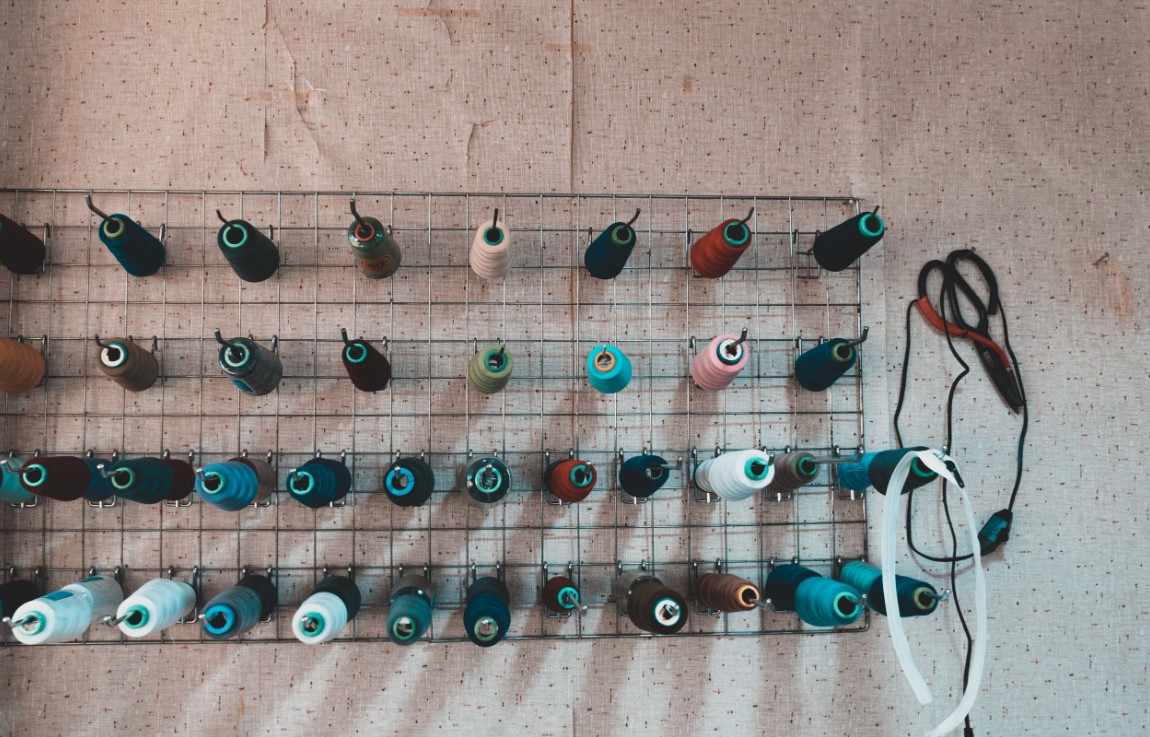
Close to losing all hope of receiving support, William made one last attempt to secure funding and applied for a grant from IOM Iraq’s Enterprise Development Fund (EDF) — an innovative program that aims to contribute to economic recovery and private sector revitalization in Iraq. Her application was successful, and she received the grant, enabling her to develop her business and start expanding the factory.
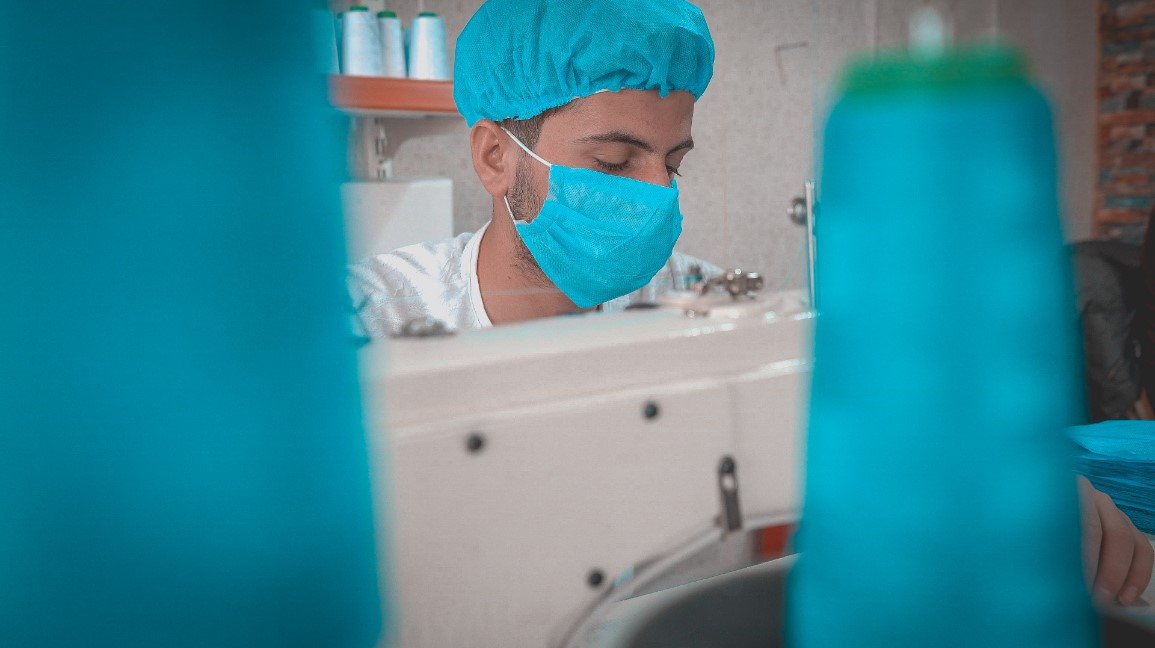
“I’m very happy about this opportunity, it will help my business substantially; I can finally grow the factory and produce many more masks,” said William.
She is now planning to buy four more machines, for a total of 10, and grow her team from 10 to 16 employees. She Is confident that she can increase her mask production, and begin producing medical scrubs and coats.
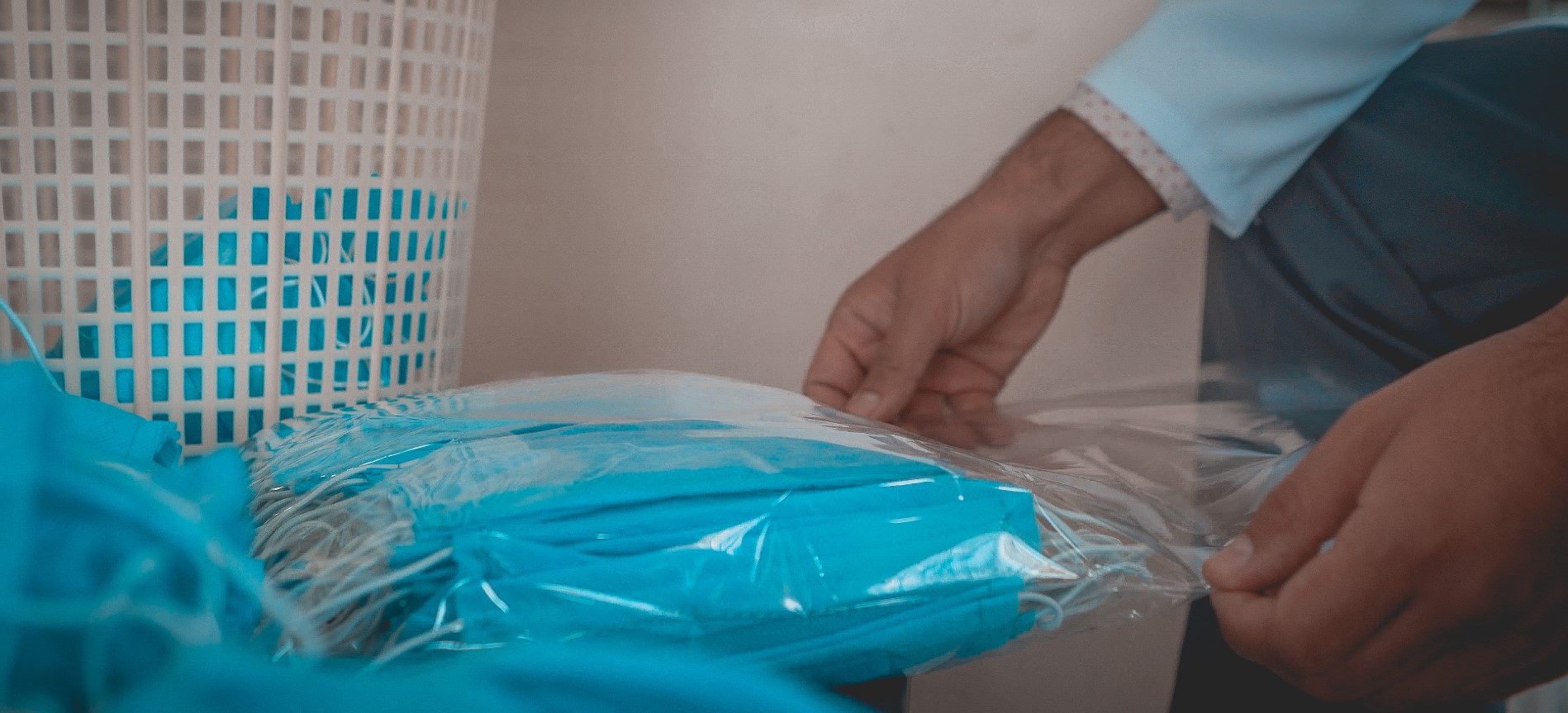
“I know my factory will succeed; I have an excellent management team and the idea is new to Iraq. Besides, I already have customers all over the country,” William said. “I wish the community would help Iraqi women more, we can stand on our feet and do much more with our lives if we have support.”
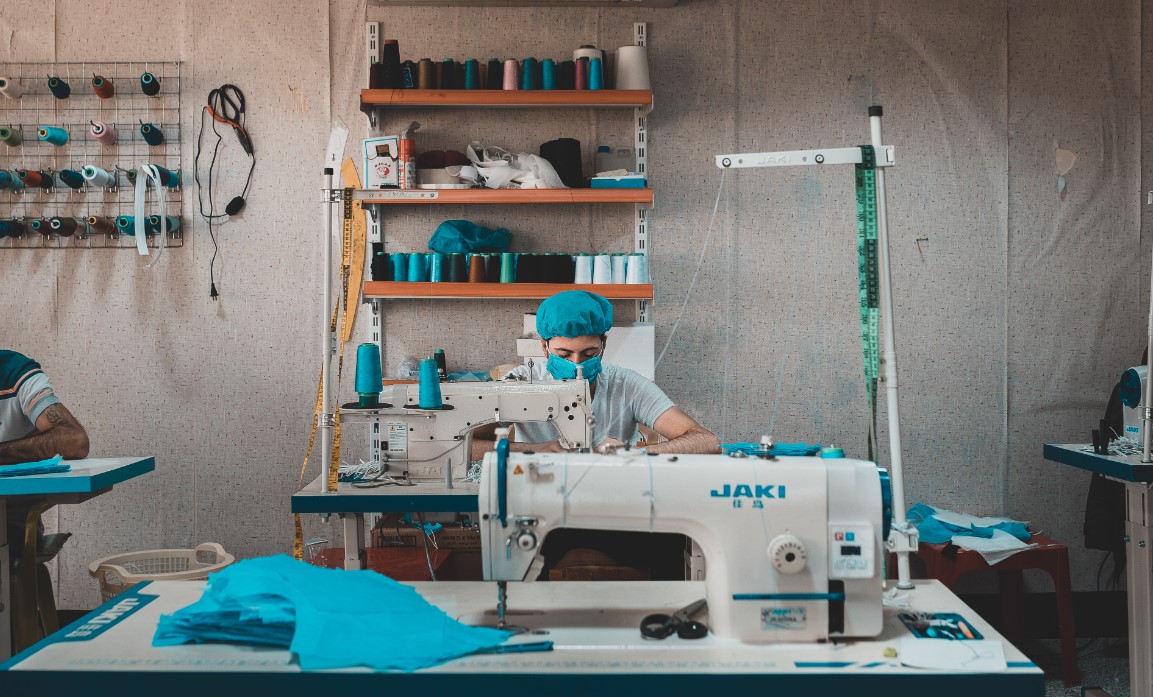
IOM’s Enterprise Development Fund (EDF) offers an innovative livelihoods approach to contribute to economic recovery and private sector revitalization in Iraq, through tailored support to Small and Medium Enterprises (SMEs). By targeting key sectors and providing necessary funding, the EDF encourages rapid but also large-scale job creation. In an effort to support the Government of Iraq in directly addressing the COVID-19 pandemic, and contribute to job creation to tackle the broader socio-economic crisis of the pandemic, IOM is profiling SMEs that are combatting the spread of COVID-19 and awarding EDF grants to eligible businesses. These include medical equipment and supply companies, like disinfectant and PPE manufacturers, and delivery companies. The grants will help businesses expand and hire additional employees to meet the increasing demand for medical supplies.
Caroline William’s EDF grant was made possible with funding from the U.S. Department of State’s Bureau of Population, Refugees, and Migration (PRM).



